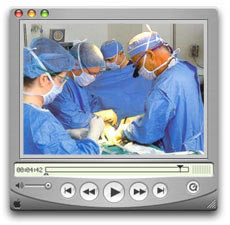National Infertility Week - What About Infertility Because of a Tubal Ligation?
During National Infertility Week, starting today October 20th, a lot of attention in the media will be given to the treatment of In Vitro Fertilitzation (IVF). This is a technologically advanced treatment for most causes of infertility. But what about those couples who want to have a baby but can't because of a previous tubal ligation? There are hundreds of thousands of infertile couples in this group in the US. Is IVF the best treatment for them? Let's compare the two treatments to see which might be the best one for women whose tubes have been tied.
Tubal reversal is a method of rejoining the fallopian tubes where they were cut. The preparation is minimal for the surgery and includes reviewing your tubal ligation operative records. The operation takes about an hour and is done as outpatient surgery at Chapel Hill Tubal Reversal Center. This cuts the cost in half or less than if done as an in-hospital operation.
Now let's look at IVF in comparison. There are hormonal shots that you have to get in order to stimulate your body's egg production and also to keep it from going into ovulation prematurely. These can take from one to two weeks or longer and are just the preparation part.
Next will be the removal of your eggs. Of course, the doctor will need to be sure of the right time to do so and will do this by monitoring with hormonal blood tests and ultrasound exams to be sure to catch the eggs at the right time. Your system has been stimulated to produce many more eggs than normal. You will get another shot before ovulation is due. Then, when all is ready, the doctor will use a needle to remove the egg.
Now, comes the part you have been taking all those shots for. You will have the fertilized eggs implanted into your body. This will happen after some time in the lab where the fertilization and the beginning development of the embryo takes place. You will most likely get several fertilized eggs, which actually have begun developing into embryos, placed back into your uterus. You will get more injections at this point as well.
This is when you hold your breath hoping everything will go OK. Of course,this will depend upon things like how skilled your doctor is and how careful he was in implanting the embryos among other things. If it doesn't work, you may have had some extra embryos frozen.
Before you make a decision to have IVF done, you should probably take a look at the success rates. Most commonly the success rates of any one cycle are given as 20 - 30% that you will be successful. You have a higher likelihood of success with more eggs implanted but don't want to go overboard as that could lead to some problems as well. You will find that three embryos is about the most any doctor will implant. Still, one in every three pregnancies that occur after IVF is a multiple pregnancy. Babies conceived as a result of IVF are more likely to be born prematurely and have health problems later in life.
Getting back to the option of tubal reversal, the success rates will vary depending upon your chosen surgeon. This makes choosing the best tubal reversal doctor and center a matter of utmost importance. At the Chapel Hill Tubal Reversal Center - the only facility where they publish their specific pregnancy rates after a tubal reversal, you will see that it is an overall 70%. Your potential success rate will depend upon several things including your age, tube lengths left for repairing, and type of ligation procedure used. The good news is that once the surgery is done, you get to try over and over again to "make a baby" every month without having to pay any more money.
And that's the last thing to cover. One session, or cycle, of IVF will cost on average $10,000 to $12,000 with most patients being told to expect to undergo at least three cycles. That's $30,000 or more for most couples who start treatment by IVF. The average cost of a tubal reversal varies widely, but at Chapel Hill Tubal Reversal Center it ranges between $5400 and $6900 depending upon which option you choose. So with a higher success rate, lower cost, and the opportunity to become pregnant month after month, what do you think tubal reversal now? It may not be as well known or advertised as IVF, but during National Infertility Week, it should certainly be recognized as the best treatment for women wanting to become pregnant again but who are infertile because they had their tubes tied in the past.


No comments:
Post a Comment